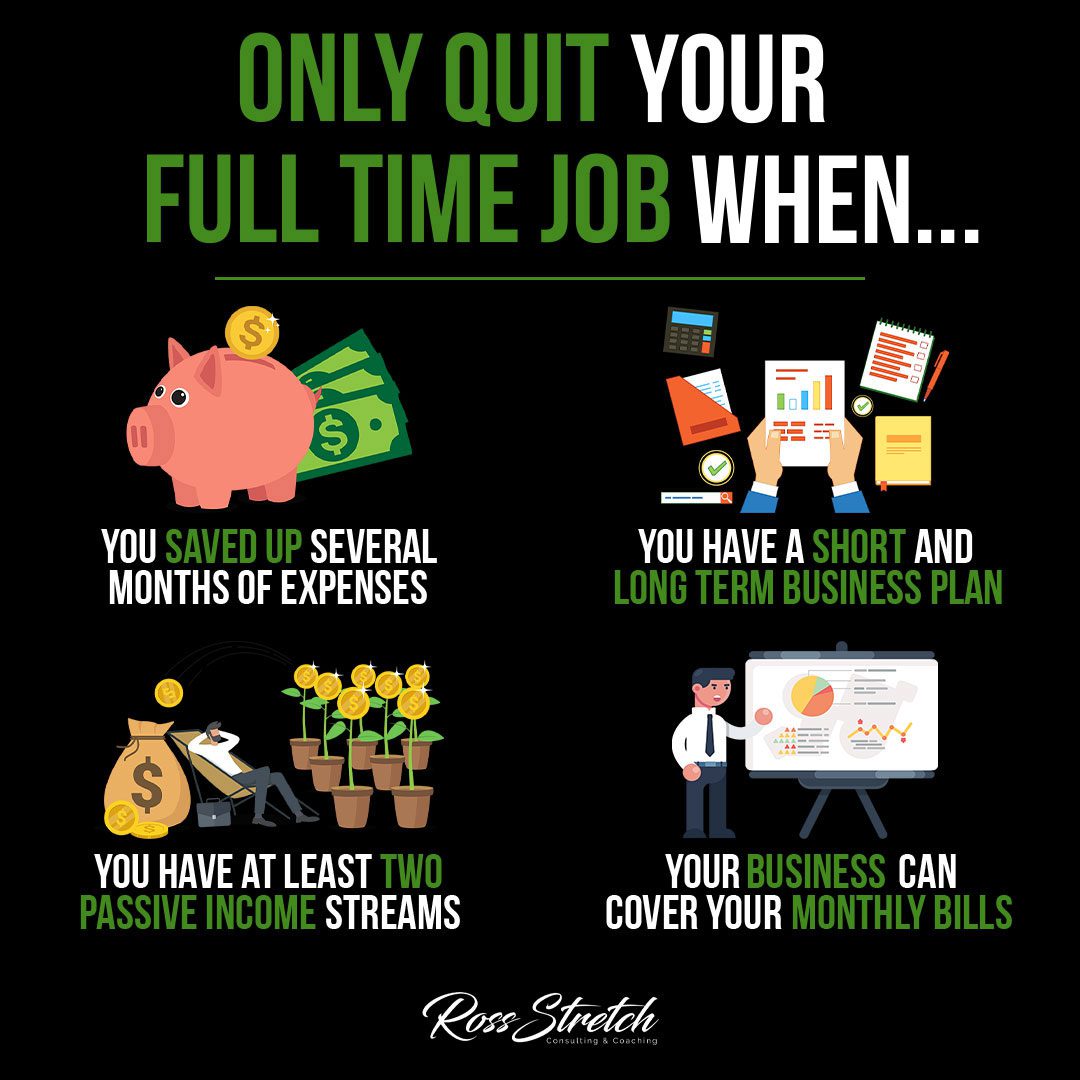Introduction
Leaving the security of a full-time job to pursue your own business venture can be both exhilarating and challenging. However, it’s crucial to ensure that you have a solid foundation before taking this leap. In this article, we will discuss the key factors to consider before quitting your full-time job.
Diversifying your income streams provides stability and reduces the financial pressure on your new venture.
Ross Stretch
You Have Saved Up Several Months of Expenses: Building a Safety Net
Before quitting your job, it’s essential to have a financial cushion to sustain you during the initial stages of your business. Aim to save at least several months’ worth of expenses to provide a safety net during the transition period. This will help alleviate financial stress and give you peace of mind as you build your business.
You Have a Short and Long-Term Business Plan: Mapping Out Your Success
A well-defined business plan is crucial for the success of your entrepreneurial journey. Create a comprehensive strategy that outlines your short-term goals and long-term vision. This plan should include market analysis, target audience identification, marketing strategies, and financial projections. A solid business plan will guide your decision-making and set you on the path to success.
You Have at Least Two Passive Income Streams: Diversifying Your Income
Relying solely on your new business for income can be risky, especially during the initial stages. Before quitting your full-time job, it’s advisable to establish at least two passive income streams. This can include rental properties, investments, royalties, or any other source that generates income without requiring your active involvement. Diversifying your income streams provides stability and reduces the financial pressure on your new venture.
Your Business Can Cover Your Monthly Bills: Ensuring Financial Sustainability
One of the critical indicators for quitting your full-time job is when your business can generate enough revenue to cover your monthly expenses. Before taking this step, evaluate your business’s potential income and ensure it can sustain your lifestyle without significant financial strain. This will ensure that you have a steady income stream to support your needs and the growth of your business.
Conclusion
Quitting your full-time job and embarking on your entrepreneurial journey is an exciting prospect. However, it’s crucial to make an informed decision based on certain criteria. This article has highlighted the importance of having a financial safety net, a well-structured business plan, reliable passive income streams, and the ability of your business to cover your monthly bills. By meeting these criteria, you can set yourself up for success and navigate the challenges that come with starting your own business. Remember, patience and careful planning are key to a smooth transition into entrepreneurship.


